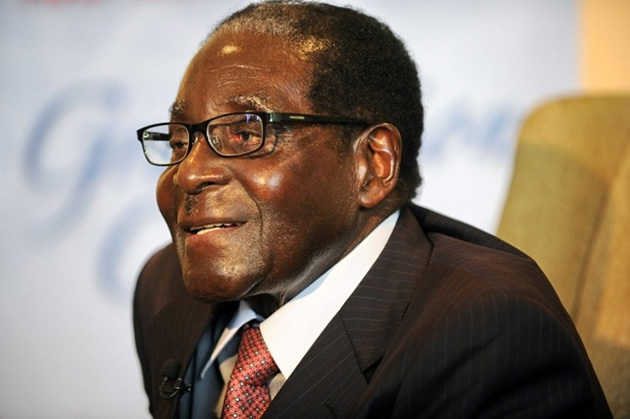Unity: President’s enduring passion

Lovemore Ranga Mataire Senior Writer
The Million-Man March in solidarity with President Mugabe by ZANU PF youths had all the hallmarks of an enduring event whose impact parallels that of similar demonstrations by the same name called by Minister Louis Farrakhan of the United States-based Nation of Islam, to foster a spirit of support and self-sufficiency with the black community.
While many analysts attribute the Million-Man March in America for creating a pathway for then Senator Barack Obama to ascend to the US Presidency, the ZANU-PF Youth League demonstrations certainly cemented President Mugabe’s unquestionable status as an African icon, whose illustrious life bestrode the country and the continent like a colossus.
Unlike the American Million-Man March, this demonstration was unique in that it was held on Africa Day and led by youths who symbolically hold the ploughshare for the continent’s future prospects. It was indeed befitting for the solidarity march to be held on Africa Day, a day set aside to reflect on the founding of the Organisation of African Unity now African Union, which paved the way for military and political mobilisation for the independence of the whole continent.
While President Mugabe’s adversaries begrudge him for his steadfastness in standing against the West’s machinations for regime change and also for being gifted with a long life, most Zimbabweans regard him an intractable liberation icon who personifies their long held struggle against political and economic domination by the West.
And to most Africans, the man is an enduring symbol of Africa’s determination to assert its dignity and has never relented in calling for the reformation of the skewed international system that denigrates and marginalises the African voice.
Given his sterling international status as an unyielding pro-African, President Mugabe has always gotten rapturous reception wherever he has gone on the continent. He has arguably become the only sole voice of African conscience.
Attempts by Western detractors to create an image of a monstrous Mugabe have failed to stick as most Africans view him as a principled leader with his roots as a simple village boy raised by his mother, Mbuya Bona Mugabe, under the stewardship of Roman Catholic priests — the Jesuits at Kutama Mission in Zvimba District, north-west of the then Salisbury, in southern Rhodesia.
There can be no doubt, however, that despite an illustrious political career as an African statesman and a liberation icon, President Mugabe, just like the late founding Ghanaian President Kwame Nkrumah and Libya’s Muammar Gaddafi, has a lingering concern about the failure by the continent to achieve a United States of Africa as envisaged by the continent’s founding fathers.
The quest for concrete unity of all African nations still remains President Mugabe’s unfinished project.
Almost three years ago, President Mugabe showed his exasperation with some African leaders who were stalling continental unity.
Addressing journalists at State House after a two-hour meeting with the then outgoing AU chairperson Benin President Thomas Boni Yayi, President Mugabe said the setting up of a United States of Africa would have been the panacea in ending most of the continent’s divisions.
“Africa is not a united continent. We are not at the stage our founding fathers wanted us to be when the organ was formed.”
President Mugabe said the continent still needed to deal with the vestiges of colonialism which left Africans divided into Anglophones and Francophones, a situation which makes certain countries vulnerable as they were still depended financially on the former colonisers.
While the project for continental unity has faced hurdles, President Mugabe has on the domestic scene achieved major milestones as a leader especially his ability to craft a wholly internal solution to halt early internal disturbances in Matabeleland and Midlands provinces caused by former disgruntled PF-ZAPU cadres who had turned dissidents.
Without any external mediation, President Mugabe consummated the Unity Accord together with then ZAPU leader the late Father Zimbabwe Dr Joshua Nkomo in December 1987. It was the Unity Accord which eventually ushered in peace and tranquillity, a feat that even the country’s detractors hailed as a milestone in conflict management and resolution in Africa. President Mugabe’s successes in education are unparalleled in Africa as at independence he sought to expand the education sector to cater for the previously marginalised black Zimbabweans.
The expansion of the education sector and various other affirmative actions contributed to the high literacy rate on the continent.
President Mugabe has also been strong in condemning corruption which saw him dismissing some ministers and party associates between 1989 and 1994, when corruption was revealed at the highest levels of Government.
Faced with an opposition largely sponsored by white commercial farmers and the former coloniser Britain, President Mugabe embarked on the land reform programme whose thrust was to correct historical injustices that displaced indigenous black people from fertile arable lands to give way to minority whites that numbered 4 500 and yet occupied 75 percent of the arable land.
Irked by President Mugabe’s insistence of the fast track land reform programme, Britain and its European allies including the US, imposed sanctions on Zimbabwe, a development which has since stifled economic growth for the landlocked country.
Through President Mugabe’s leadership the Government promulgated the Look East policy premised on capitalising the historical relations cultured during the struggle.
It is the Look East policy that has since stabilised Zimbabwe’s economic prospects, much to the chagrin of Britain and the US, who anticipated that the economy would “scream” and push Zimbabweans to rise against the Government. Despite the West’s continued vilification of President Mugabe, the majority of African states have continued having confidence in him as evidenced by his taking over the leadership of both SADC and AU before handing over after the expiry of his term.
As AU and SADC chair President Mugabe reinforced the need for harnessing local resources in funding of the two bodies instead of relying on external donors.
He also emphasised the need for the acceleration of the continent’s industrialisation through beneficiation and value addition of the continent’s resources.
Besides value addition, President Mugabe has advocated for the reformation of the United Nations Security Council which he said did not reflect the current demographic balance.
All the issues President Mugabe raised during his reign as the SADC and AU chair resonated across all classes in Africa and what is left is for African states to once again reignite the pan-African spirit that united them in the fight against colonialism to fight global economic disparities.
It is not in doubt that President Mugabe is a true living legend who deserves a coveted place in the cannons of African nationalism and liberation.








Comments